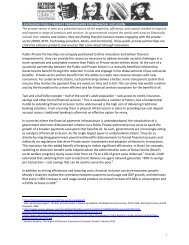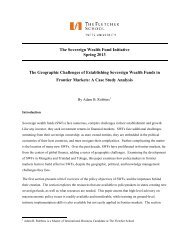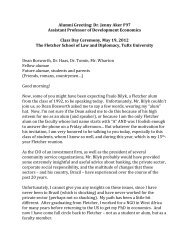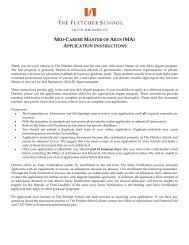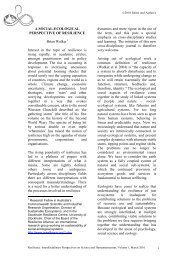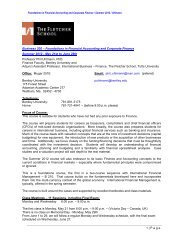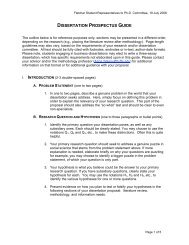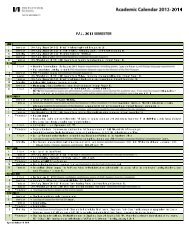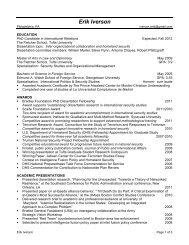Fletcher School of Law and Diplomacy - Tufts University
Fletcher School of Law and Diplomacy - Tufts University
Fletcher School of Law and Diplomacy - Tufts University
- No tags were found...
Create successful ePaper yourself
Turn your PDF publications into a flip-book with our unique Google optimized e-Paper software.
“Facebook <strong>and</strong> interactive media are being touted asthe next big thing, but what does that mean? How doyou separate the hype from what’s really happening?How do you harness what is possible?”PATRICK MEIER F12Photo credit: Jan Grarup/NOOR/ReduxInformation communication technology is changing the way we view the world—especiallyhow we view those places in crisis. In my research, I’m exploring how governments,activists, <strong>and</strong> revolutionaries employ new media <strong>and</strong> how it has transformed our abilityto map conflicts, respond to uprisings, <strong>and</strong> provide humanitarian response. Sure,Facebook <strong>and</strong> interactive media are being touted as the next big thing, but what doesthat mean? How do you separate the hype from what’s really happening? How do youharness what is possible?In 2010, while earning my PhD at The <strong>Fletcher</strong> <strong>School</strong>, I had the occasion to explorethese possibilities firsth<strong>and</strong> when a devastating earthquake hit Haiti. In the immediateaftermath, I put together a Ushahidi map to pinpoint the locations <strong>of</strong> those in need <strong>of</strong>services <strong>and</strong> available resources. With the help <strong>of</strong> more than one hundred <strong>Fletcher</strong> students,<strong>Tufts</strong> undergraduates, <strong>and</strong> other volunteers, we created what FEMA called “themost comprehensive <strong>and</strong> up-to-date map available to the humanitarian community.”The project fielded thous<strong>and</strong>s <strong>of</strong> Tweets <strong>and</strong> SMS messages <strong>and</strong> saved hundreds <strong>of</strong> lives.The Haiti crisis map marked the beginning <strong>of</strong> what’s becoming an increasinglyimperative <strong>and</strong> exciting aspect <strong>of</strong> international relations. Just look at the repressiveregimes that have fallen recently—look at the impact that decentralized, distributed, <strong>and</strong>mobile technologies have had in those revolutions. As one Egyptian activist asserted:“We use Facebook to schedule our protests, Twitter to coordinate, <strong>and</strong> YouTube to tellthe world.”At the Qatar Foundation Computing Research Institute (QCRI) we are workingon the next generation <strong>of</strong> humanitarian technology solutions. I like to think <strong>of</strong> it as“Computing for Good”—backed by some serious resources.Patrick Meier is an internationally recognized leader on the application <strong>of</strong> new technologies for crisis early warning, humanitarian response, humanrights, <strong>and</strong> civil resistance. He is the Director <strong>of</strong> Social Innovation at the Qatar Foundation Computing Research Institute (QCRI) <strong>and</strong> was previouslyDirector <strong>of</strong> Crisis Mapping at Ushahidi. He holds a PhD from The <strong>Fletcher</strong> <strong>School</strong>, a Pre-Doctoral Fellowship from Stanford, <strong>and</strong> an MIA fromColumbia <strong>University</strong>. He was born in Abidjan <strong>and</strong> raised in Nairobi.(21)



